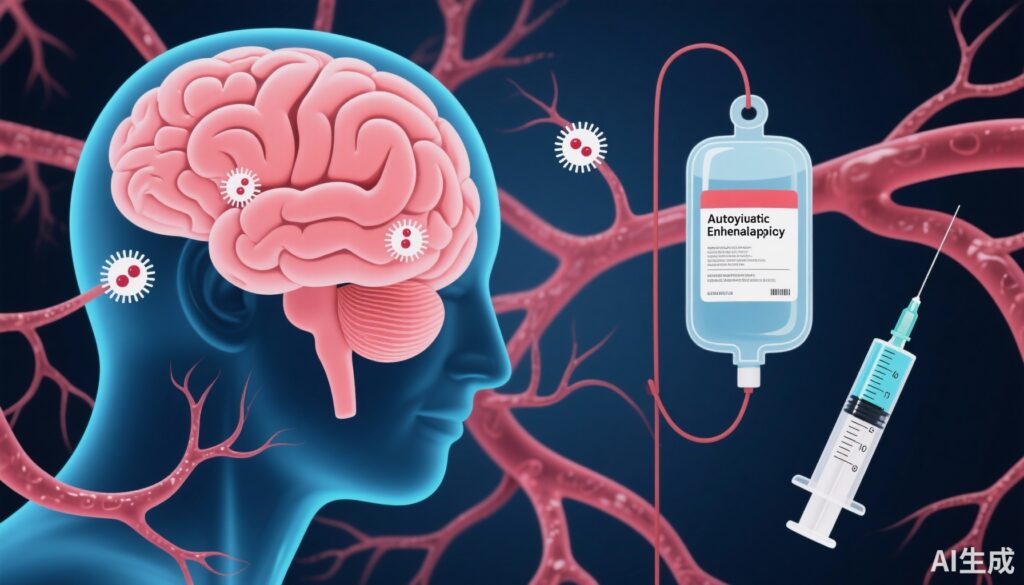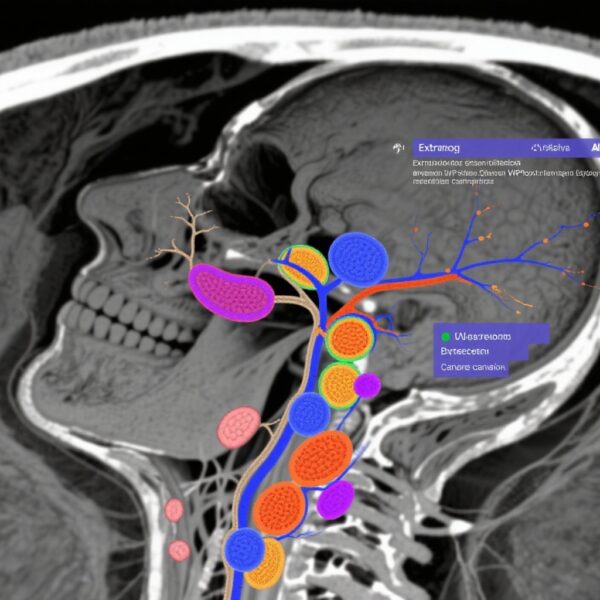Highlight
– Early intravenous immunoglobulin (IVIg) treatment within the first year of anti-IgLON5 disease onset is associated with significantly lower long-term disability and mortality.
– Early immunotherapy overall improves survival and functional outcomes compared to delayed or no treatment.
– Rituximab and other immunotherapies initiated early did not demonstrate the same survival benefit as IVIg in this cohort.
– Anti-IgLON5 disease deaths are predominantly disease-related, underscoring the need for effective early immunotherapy.
Study Background
Anti-IgLON5 disease is a recently characterized autoimmune neurological disorder involving antibodies against the IgLON5 protein, leading to encephalopathy with a wide spectrum of clinical features including sleep disturbances, movement disorders, bulbar symptoms, cognitive decline, and brainstem dysfunction. The disease often carries a poor prognosis with substantial morbidity and mortality, in part due to progressive neurodegeneration and limited efficacy of currently available treatments. Despite increasing recognition, the optimal immunotherapeutic approach remains undefined, with inconsistent responses reported in case reports and small series. Hence, robust data examining the timing and type of immunotherapy and their impact on clinical outcomes in a substantial cohort are urgently needed to guide management.
Study Design
This retrospective, multicenter cohort study collected data from 2014 to 2024 on 107 patients diagnosed with anti-IgLON5 disease across multiple European centers including the German Network for Research on Autoimmune Encephalitis Registry, the University Hospital Clinic of Barcelona, and Erasmus University Medical Center. Participants had clinical features compatible with anti-IgLON5 disease and confirmed IgLON5 antibodies in serum or cerebrospinal fluid. Exclusion criteria included insufficient clinical information or withdrawal of consent (14 patients excluded). The median follow-up was 66 months after disease onset.
Immunotherapy initiation was determined by treating physicians, and patients were categorized based on timing of immunotherapy: early (within the first year of disease onset) versus later. Among early-treated patients, therapies included intravenous immunoglobulins (IVIg), rituximab, and other immunotherapies. Primary outcomes measured were long-term disability assessed by the modified Rankin Scale (mRS) at last follow-up and all-cause mortality.
Key Findings
Among the 107 patients (median age 64 years, 43% female), 25 (23.4%) received immunotherapy early within one year of onset, while 57 (53.3%) received immunotherapy later.
A total of 44 patients (41.1%) died during follow-up; notably, at least two-thirds of deaths (28/44, 63.6%) were attributable to anti-IgLON5 disease complications.
Multivariate analysis identified early immunotherapy as the sole modifiable independent predictor associated with lower long-term disability (odds ratio [OR], 0.32; 95% confidence interval [CI], 0.13–0.83; P = .02) and improved survival (OR, 2.70; 95% CI, 0.99–7.69; P = .047).
Among early-treated patients, those receiving IVIg had significantly better outcomes compared to other immunotherapies, including rituximab. IVIg initiated within the first year was associated with a lower median mRS score at the most recent follow-up (2 [IQR 1–2.5] versus 3 [2–6]; P = .005) and no deaths (0/9), while patients treated with other immunotherapies had higher disability and a 37.5% (6/16) mortality rate despite comparable baseline disability scores.
These results suggest a critical therapeutic window early in the disease course during which IVIg administration can confer a substantial survival and functional benefit.
Expert Commentary
Anti-IgLON5 disease has been challenging to treat due to its complex autoimmune and neurodegenerative features. The study by Grüter et al. provides valuable, large-scale evidence supporting the strategic value of early immunomodulation, particularly with IVIg. The observed mortality reduction is clinically significant given the disease’s high fatality rate.
IVIg’s mechanisms in autoimmune encephalopathies likely include modulation of autoantibody effects, anti-inflammatory actions, and immune regulation, which, when applied early, may mitigate irreversible neuronal damage. Contrastingly, rituximab, a B-cell depleting agent, might require a longer time to exert benefit and may not be optimal as monotherapy in the early phase.
Limitations of this study include its retrospective design, potential selection bias, and treatment heterogeneity. Further prospective, randomized controlled trials are required to confirm these findings and optimize treatment protocols.
Conclusion
The study establishes that early immunotherapy initiation, especially intravenous immunoglobulins within the first year of anti-IgLON5 disease onset, is associated with significantly better long-term functional outcomes and survival. This highlights the importance of prompt diagnosis and early therapeutic intervention in this devastating autoimmune encephalopathy. Further prospective studies are warranted to validate these results and inform standardized treatment guidelines.
Funding and Clinical Trials
The study was supported by collaborative European research networks and did not report specific pharmaceutical funding. No registered prospective clinical trials are currently reported for early IVIg treatment in anti-IgLON5 disease.
References
Grüter T, Gaig C, Crijnen YS, Titulaer MJ, Sabater L, Heidbreder A, et al. Early Treatment With Intravenous Immunoglobulins and Outcomes of Patients With Anti-IgLON5 Disease. JAMA Neurol. 2025 Oct 1;82(10):1040-1047. doi:10.1001/jamaneurol.2025.2574.



